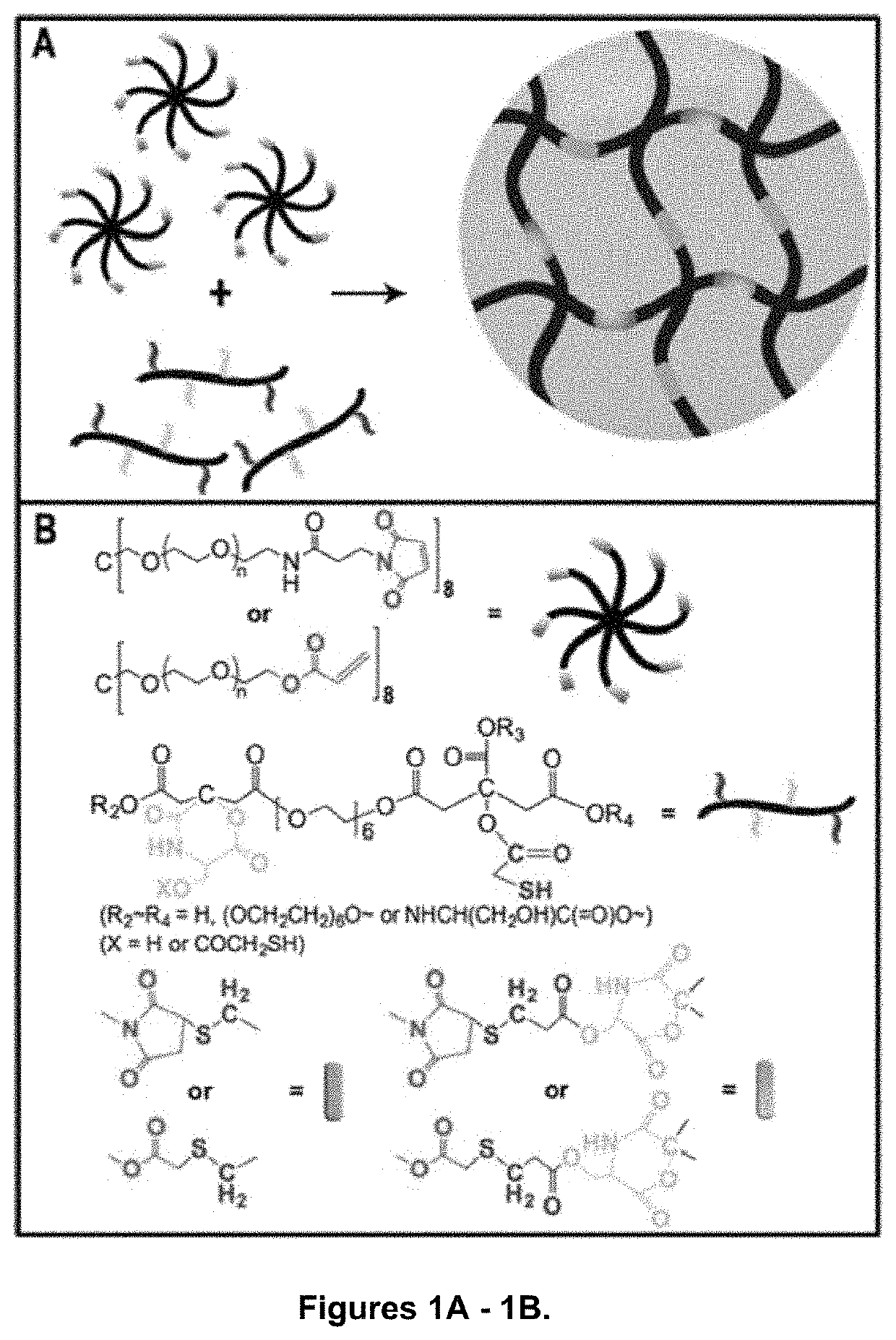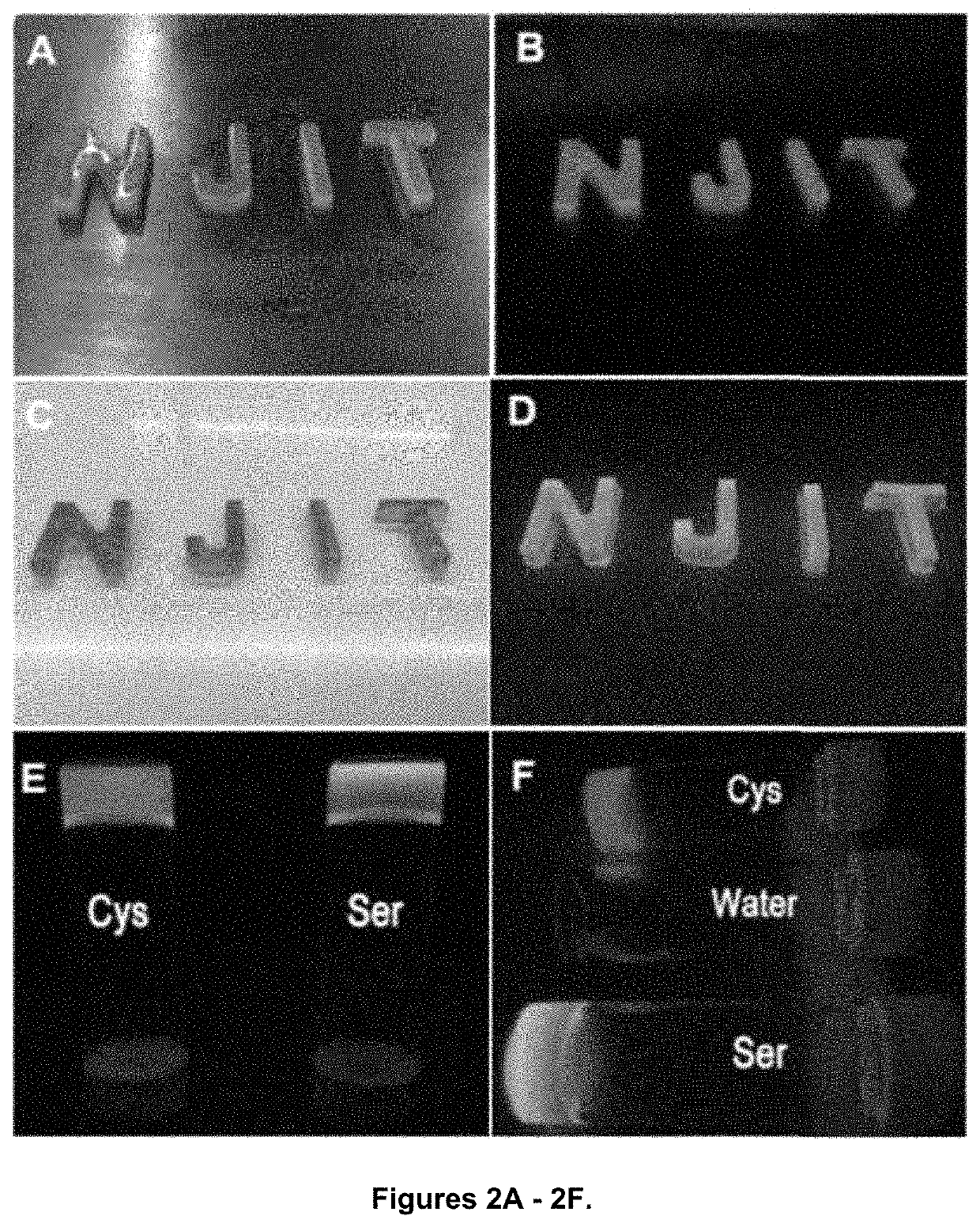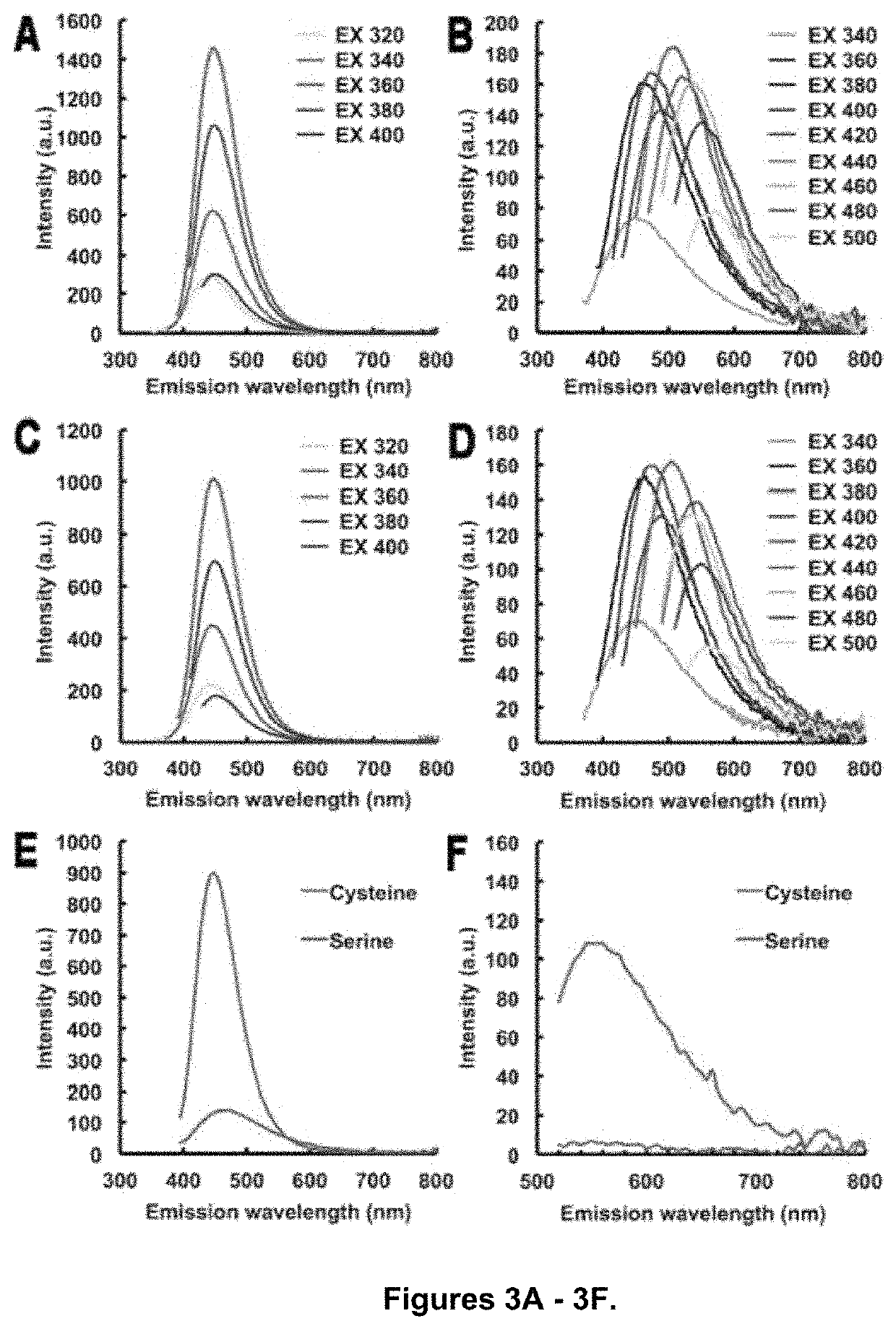Photoluminescent hydrogel
a photoluminescent hydrogel and hydrogel technology, applied in biochemistry apparatus and processes, enzymology, aerosol delivery, etc., can solve the problems of photobleaching and cellular toxicity, organic dyes and fluorescent proteins are subject to certain limitations, and semiconductor nanocrystals also pose risks to human health and the environment, so as to achieve the highest yield stress, strong emission of fluorescence, and favorable results of invention
- Summary
- Abstract
- Description
- Claims
- Application Information
AI Technical Summary
Benefits of technology
Problems solved by technology
Method used
Image
Examples
Embodiment Construction
[0034]In general, this disclosure overcomes the disadvantages of past attempts. Shown is a novel class of polyester based hydrogels, with degradable, injectable and self-fluorescent properties. In one embodiment, the hydrogel was successful developed through transesterification reaction using Candida antarctica Lipase B (CALB) as a catalyst.
[0035]One hurdle overcome was the issue of photoluminescent properties for a hydrogel. Conventionally, synthetic hydrogels with photoluminescent properties can be prepared by conjugating or doping hydrogel matrix with fluorescent moieties such as organic dye, fluorescent protein, colloidal semiconductor nanocrystal, metal-ligand complex and lanthanide ions. However, among them, organic dye and fluorescent protein are subjected to certain limitations such as photo-bleaching and cellular toxicity. Semiconductor nanocrystals also pose risks to human health and the environment under certain conditions. Similarly, toxicity from the heavy metal content...
PUM
| Property | Measurement | Unit |
|---|---|---|
| yield stress | aaaaa | aaaaa |
| excitation wavelength | aaaaa | aaaaa |
| wavelength | aaaaa | aaaaa |
Abstract
Description
Claims
Application Information
 Login to View More
Login to View More - R&D
- Intellectual Property
- Life Sciences
- Materials
- Tech Scout
- Unparalleled Data Quality
- Higher Quality Content
- 60% Fewer Hallucinations
Browse by: Latest US Patents, China's latest patents, Technical Efficacy Thesaurus, Application Domain, Technology Topic, Popular Technical Reports.
© 2025 PatSnap. All rights reserved.Legal|Privacy policy|Modern Slavery Act Transparency Statement|Sitemap|About US| Contact US: help@patsnap.com



